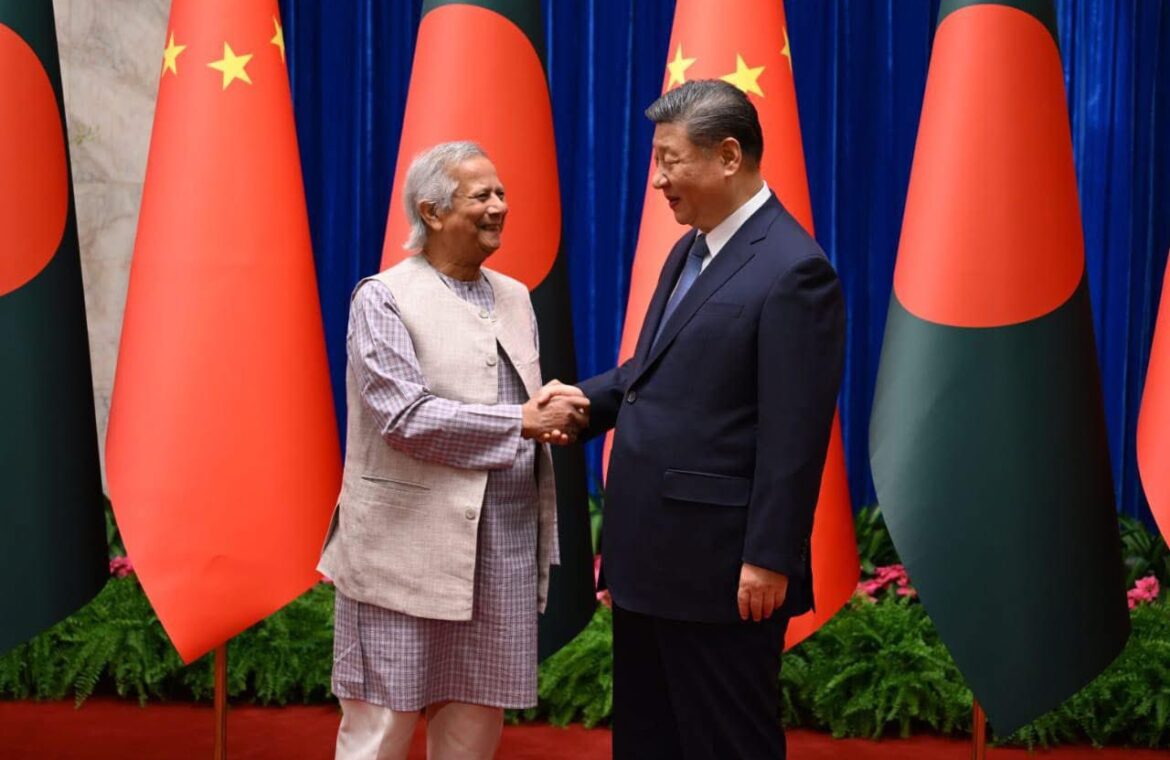The political landscape in Bangladesh has undergone significant changes following the protests that led to the ousting of the government last year. These events have not only shifted diplomatic relations but also intensified polarisation within the nation, raising concerns about external interference. As Bangladesh approaches its upcoming elections, these dynamics are becoming increasingly pronounced.
Strained India-Bangladesh Relations
The removal of former Prime Minister Sheikh Hasina marked a turning point in Bangladesh’s diplomatic relations with India. Tensions have soared between the two countries, with India expressing displeasure over the removal of its ally. Praveen Donthi, an analyst with the International Crisis Group, notes that India-Bangladesh relations are experiencing unprecedented strain.
The discontent stems from the circumstances surrounding Hasina’s departure. The former prime minister fled to New Delhi in the wake of a student-led uprising, receiving sanctuary from the Hindu nationalist government in India. This decision has sparked resentment in Bangladesh, especially as Hasina faces extradition requests and has been convicted in absentia for contempt of court.
Bangladesh’s Diplomatic Pivot to China
In the wake of the strained relations with India, Bangladesh has sought to realign its diplomatic ties, gravitating towards China. Interim leader Muhammad Yunus embarked on his first state visit to China, securing $2.1 billion in investments, loans, and grants. China has expressed a strong interest in collaborating with Bangladesh’s future elected government.
China’s growing influence in South Asia is a cause for concern for India, as the two largest countries in the region vie for dominance. Bangladesh’s warming relations with China, along with a budding relationship with Pakistan, have further complicated the geopolitical landscape.
Bangladesh-Pakistan Relations: A New Chapter
In a surprising twist, Bangladesh and Pakistan have started to rebuild their relationship, which had been fractured since Bangladesh’s independence war in 1971. The two countries have initiated trade by sea, with plans for direct flights. This rapprochement has raised alarms in New Delhi, as it perceives the current Bangladeshi leadership as Islamist-leaning and potentially hostile.
The engagement between Dhaka, Islamabad, and Beijing has heightened India’s concerns, leading to trade restrictions between India and Bangladesh. However, trade between the neighbors remains significant, with both nations recognizing the need for economic cooperation.
Balancing Act: Navigating Regional Tensions
The shifting alliances in South Asia require Bangladesh to tread carefully in forming alliances and maintaining its relationships with various countries. Md Humayun Kabir, a former Bangladeshi ambassador, emphasizes the importance of strengthening multilateral relations to balance the competing influences.
Bangladesh’s position as the world’s second-largest garment exporter has also been impacted by global trade tensions. In response, Dhaka is seeking to enhance its trade ties with the United States, proposing to purchase Boeing planes and increase imports of US wheat, cotton, and oil.
Regional Implications and Future Prospects
As Bangladesh navigates its diplomatic realignments, the regional implications are profound. The changing dynamics have the potential to escalate tensions, particularly if India’s concerns about the electoral process and governance in Dhaka persist. New Delhi’s satisfaction with the electoral process and the eventual leadership in Bangladesh will be crucial factors in determining the future direction of their relationship.
Analysts caution that efforts to undermine the current government in Dhaka may continue, given the uncertainty surrounding the upcoming elections. The interplay of regional powers, including China, India, and Pakistan, will play a significant role in shaping Bangladesh’s diplomatic path in the coming years.
In the midst of these shifts, Bangladesh’s caretaker government faces the daunting task of maintaining domestic consensus while navigating complex international relations. The outcome of the elections will be pivotal in determining the country’s future trajectory and its place within the broader geopolitical landscape of South Asia.
Topics #featured #trending pakistan




